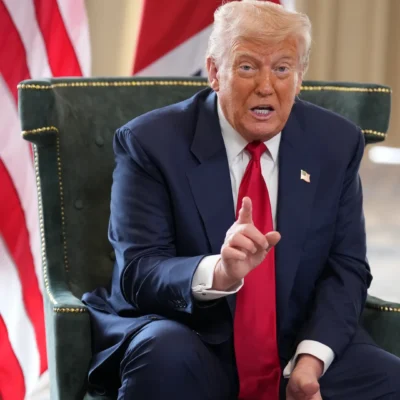Nike is one of the biggest sportswear brands in the world, known for its famous “Just Do It” slogan and top-tier endorsement deals with athletes like Michael Jordan, Serena Williams, and LeBron James. But in today’s political climate, consumers are asking more than just what a brand sells—they want to know what it stands for.
As tensions continue in the Middle East, more people are looking into where major companies, including Nike, stand on the Israeli-Palestinian conflict. Social media has become a powerful tool for activists, and calls for boycotts are growing louder. Many are asking: does Nike support Israel?
Let’s break down what we know, what’s still unclear, and why it matters to so many.
Why People Are Asking This Now

The question of corporate support in global conflicts isn’t new. But after the October 7 Hamas attacks and the military response from Israel in Gaza, public attention on the conflict reached a boiling point. Protests have taken place across major cities, and companies are being forced to take public stances or deal with consumer backlash.
With that, brands like Nike are being scrutinized not just for their statements (or lack thereof), but also for their business decisions. Some consumers want Nike to cut ties with Israel altogether. Others want the company to support Israel openly. Either way, the pressure is on.
Nike’s Business Operations in Israel

Nike does have a business presence in Israel. Until 2022, Nike products were sold through local distributors in the country. However, in October 2021, the company announced that it would stop working with some of its Israeli partners, stating that it was part of a “global strategy” to shift toward direct-to-consumer sales.
This decision led to speculation online, with some claiming that Nike was pulling out of Israel for political reasons. But the company never said anything to suggest that the decision was tied to politics or human rights. Instead, it emphasized that it was part of a worldwide strategy—something Nike also did in other countries.
That said, Nike’s products are still available in Israel through other means. In fact, in 2023, Nike signed a deal with a new distributor, Terminal X, allowing the brand to continue selling in the Israeli market. So, to be clear—Nike hasn’t boycotted Israel.
Has Nike Publicly Taken a Side?
So far, Nike has not made any public statements showing support for either Israel or Palestine. The company has remained silent on the issue, choosing not to engage in the political conversation around the conflict.
This silence has caused frustration on both sides.
Some critics accuse Nike of quietly supporting Israel by continuing to do business there. Others criticize the brand for not standing up against what they call human rights violations in Gaza. Meanwhile, some pro-Israel consumers are urging Nike to clearly show support for the country, especially as other companies like McDonald’s Israel or SodaStream have taken visible stances.
But Nike seems to be sticking to its usual playbook: staying neutral on complex political issues unless there’s a direct business impact.
What About Social Justice?
Nike has a history of weighing in on social justice topics—particularly in the U.S. In 2018, Nike made waves by launching a campaign with NFL player Colin Kaepernick, who protested police brutality by kneeling during the national anthem. The ad caused backlash, but also won praise from social justice advocates.
The company also made strong public statements after the death of George Floyd in 2020, urging people to speak up against racism and injustice. Nike ran ads and committed millions of dollars to Black community organizations.
So why hasn’t the company done the same with Israel and Palestine?
Some critics say this shows a double standard. “If Nike can speak up about racism in America, why stay silent about Palestinian lives?” one social media user wrote in a viral post.
Others argue that the Middle East conflict is more complicated and dangerous for global brands to comment on, especially with such divided public opinion and rising antisemitism and Islamophobia.
Boycott Calls and Backlash
Online movements have been calling for boycotts of companies that either do business with Israel or support the Israeli government. Nike has found itself on some boycott lists, mainly because of its continued commercial presence in the country.
At the same time, others are calling for boycotts of companies that are seen as supporting Palestine or being anti-Israel. This tug-of-war is putting brands in a no-win situation.
Nike hasn’t responded publicly to any boycott calls. And despite the online noise, the company hasn’t seen a major drop in sales connected directly to the conflict—at least not one that’s been reported.
What Experts Say
Brand and political experts say Nike is playing a calculated game.
“They’re trying to protect the brand on both sides,” says Maya Goldman, a consumer behavior analyst. “By not taking a stance, they keep access to both markets and avoid alienating any group too strongly. But in today’s world, silence is no longer seen as neutral.”
Marketing strategist Brian Ortega adds that companies like Nike have to walk a fine line. “They’re global. What plays well in one country might get them banned in another. So they often stay out of geopolitical topics unless it hits home with their core audience.”
Is That Enough for Consumers?
For a growing number of people, the answer is no. Younger consumers, especially Gen Z, are more politically active and socially aware. They want brands to align with their values, not just sell them shoes.
Some are now checking a company’s political involvement before making a purchase. That includes looking into where a brand operates, what causes it donates to, and how it responds to global crises.
In that context, Nike’s silence is seen by some as a statement in itself—one that says profit matters more than principle.
Final Thoughts
So, does Nike support Israel?
The answer depends on how you define “support.” Nike continues to do business in Israel and has chosen not to speak out against Israeli policies. At the same time, the company hasn’t made any statements of public support for the country or its government. It hasn’t donated to any political campaigns or made any visible endorsements in the region.
In short, Nike is staying quiet. But in today’s world, staying quiet can be just as loud as speaking up.
For some consumers, that silence is enough to stop buying the brand. For others, it’s understandable that a global company wants to avoid stepping into a centuries-old conflict.
Also Read – Pittsburgh vs. Toledo: Bold Prediction That Has Fans Talking






